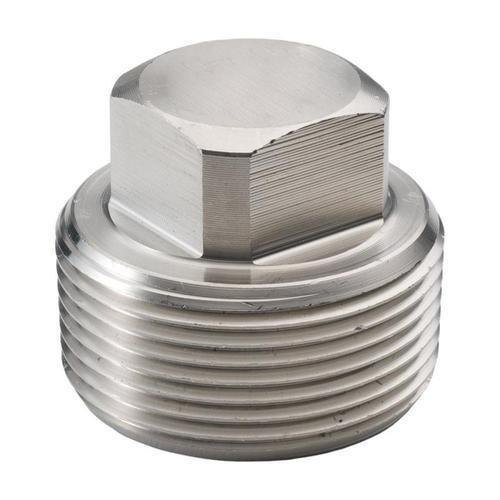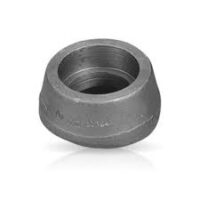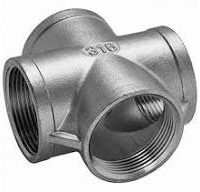PLUG
Category HIGH PRESSURE FITTINGS
A high-pressure fitting plug is a type of fitting used to seal the end of a pipe or fitting, preventing the flow of fluids or gases. It is designed to withstand high-pressure conditions, making it suitable for various industrial applications.
Key Features:
- Design: Typically cylindrical in shape, with external threads for screwing into a corresponding fitting or pipe. Some plugs may have a hexagonal shape for easy tightening with a wrench.
- Material: Commonly made from durable materials like carbon steel, stainless steel, or high-alloy materials, chosen for their strength and resistance to corrosion.
- Pressure Rating: Specifically rated for high-pressure applications to ensure safety and reliability.
Applications:
- Oil and Gas: Used to seal off unused ports or connections in pipelines.
- Hydraulic Systems: Commonly employed to close off hydraulic lines when not in use.
- Chemical Processing: Ideal for systems handling corrosive or hazardous substances, where sealing is crucial.
Advantages:
- Leak Prevention: Provides a secure seal that minimizes the risk of leaks in high-pressure systems.
- Versatility: Available in various sizes and thread types to fit different piping configurations.
- Ease of Use: Simple to install and remove, allowing for quick adjustments or maintenance.
Considerations:
- Installation: Ensure proper tightening without over-torquing to avoid damaging the plug or the fitting.
- Compatibility: Check that the plug matches the thread type and size of the existing fittings.
- Temperature and Pressure Ratings: Ensure that the plug is rated for the specific pressure and temperature conditions of your application.A high-pressure fitting plug is a type of fitting used to seal the end of a pipe or fitting, preventing the flow of fluids or gases. It is designed to withstand high-pressure conditions, making it suitable for various industrial applications.
Key Features:
- Design: Typically cylindrical in shape, with external threads for screwing into a corresponding fitting or pipe. Some plugs may have a hexagonal shape for easy tightening with a wrench.
- Material: Commonly made from durable materials like carbon steel, stainless steel, or high-alloy materials, chosen for their strength and resistance to corrosion.
- Pressure Rating: Specifically rated for high-pressure applications to ensure safety and reliability.
Applications:
- Oil and Gas: Used to seal off unused ports or connections in pipelines.
- Hydraulic Systems: Commonly employed to close off hydraulic lines when not in use.
- Chemical Processing: Ideal for systems handling corrosive or hazardous substances, where sealing is crucial.
Advantages:
- Leak Prevention: Provides a secure seal that minimizes the risk of leaks in high-pressure systems.
- Versatility: Available in various sizes and thread types to fit different piping configurations.
- Ease of Use: Simple to install and remove, allowing for quick adjustments or maintenance.
Considerations:
- Installation: Ensure proper tightening without over-torquing to avoid damaging the plug or the fitting.
- Compatibility: Check that the plug matches the thread type and size of the existing fittings.
- Temperature and Pressure Ratings: Ensure that the plug is rated for the specific pressure and temperature conditions of your application.






